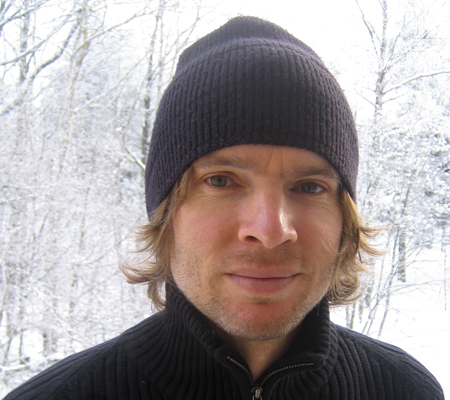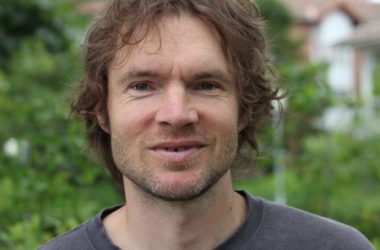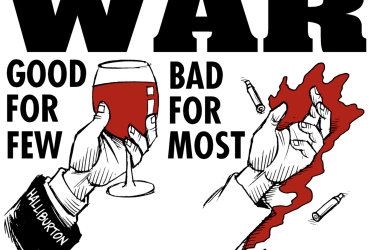On July 28, 2011, a short piece by Wayne Price, entitled “Landauer’s Fallacy,” was posted on anarkismo.net. While some of Wayne’s criticism touches on problematic aspects in Landauer’s thought—for example, a certain cultural elitism—Wayne jumps to a few conclusions that distort Landauer’s beliefs and principles. This, however, is only partly Wayne’s fault. In his analysis of Landauer he focuses strongly on a well-known quote, in which Landauer describes the state as a “social relationship.” The problem is that Wayne cites a truncated and misleading translation, which opens with the words, “The state is not something which can be destroyed by a revolution.” Landauer never wrote these words. In fact, the word “revolution” does not appear once in the essay containing the quote, a piece entitled “Weak Statesmen, Weaker People” (Schwache Staatsmänner, schwächeres Volk). Here is my translation of the relevant passage as it appears in the PM Press reader Revolution and Other Writings:
“A table can be overturned and a window can be smashed. However, those who believe that the state is also a thing or a fetish that can be overturned or smashed are sophists and believers in the Word. The state is a social relationship; a certain way of people relating to one another. It can be destroyed by creating new social relationships; i.e., by people relating to one another differently.”
It is certainly unfortunate that Wayne was dealing with a simplified translation. The following remarks must therefore not necessarily be read as a criticism of Wayne, but as an attempt to correct some of the assumptions made in his essay about Landauer’s ideas.
1. Landauer never, in any way, questioned the importance of revolution. To suggest that he advocated a “nonrevolutionary strategy” is simply wrong. In fact, Landauer dedicated one of his main works, fittingly entitled Revolution, to the topic. I would recommend anyone who is interested in Landauer’s view on revolution to read the text (available in English as the title essay of Revolution and Other Writings). The gist of Landauer’s understanding of revolution is the following: The events we know as historical revolutions (the American Revolution, the French Revolution, etc.) are important stepping stones on humankind’s way to socialism (for Landauer synonymous with anarchism), but they do not define “real revolution” in the sense of creating a socialist society. The reason is that revolutions as historical events might shake power structures, but they do not necessarily give way to radically new forms of social interaction and organization, especially if the revolutionaries “have not yet created the institutions necessary for a true community and a true society of human beings,” as Landauer states at the end of “Weak Statesmen, Weaker People.” For Landauer, “real revolution” lies in realizing true socialism, which is the only way to prevent authoritarian and oppressive structures from returning. Essentially, he demands the same as Wayne, namely “to prepare for an eventual revolution.” The following quote from Revolution summarizes this well, I believe:
“In revolution, everything happens incredibly quickly, just like in dreams in which people seem to be freed from gravity. Of course, one might experience a similar sentiment when awake: in late hours of reflection, observation, imagination, and creation, we may be convinced that we will achieve all of our goals and that all of the obstacles we face will eventually vanish. Then, however, the day arrives and we can no longer understand our optimism, our courage, our faith. These dark days are long and we will spend many nights remembering them, lying awake downhearted, listless, sad, and depressed. Until another night arrives when we appear to grow wings that will carry us beyond everything that stands in our way; and during those nights, we will remember other nights when the sun rose within ourselves, when everything seemed possible, and when we felt that it was our duty to fight and to achieve our ideals. This describes the relationship between fast, dream-like revolutions and the tedious periods in-between them. We will go back and forth between these phases until a spirit comes that allows us to realize our nightly dreams every day. Then our spirit will truly come to life. It will no longer be reduced to moments of aggression and destruction that, after some time, always give way to barrenness and anguish.”
2. Wayne suggests that Landauer “counterposed approaches”: “either we see the state as a thing, an institution, or we see it as relationships. Either we aim for a revolution to smash the state or we build alternate relationships here-and-now.” I’m not sure how Wayne reaches this conclusion, but it is false. By stressing the importance of seeing the state as a social relationship, Landauer never denied that the state also takes on institutional forms—after all, social relationships usually imply social institutions (see also Landauer’s quote about “creating the institutions necessary for a true community and a true society of human beings” above). Landauer only meant to emphasize the fact that authority and oppression are reproduced in social relationships on an everyday level, which allow the state to flourish as the institutionalization of such forms of relationships. One might disagree with Landauer prioritizing the “micro level” of state society over the “macro level”, but there is no counterposing here.
3. Wayne claims that Landauer’s writing “is full of vile insults and degrading caricatures of the working class”. I’m not sure how much of Landauer’s writings Wayne has read, but this accusation can hardly be based on a thorough study of Landauer’s work. Landauer wrote hundreds of articles, and one is hard-pressed to find any statement that would indeed deserve to be classified as a “vile insult” or a “degrading caricature” of working-class people—one must not mistake references to class injustice in education for insults of the underprivileged. Even Landauer’s high-brow approach to culture was not necessarily dismissive of the working class. When criticized for alienating working-class readers by writing extensively about the arts, Landauer’s usual response highlighted one of the most problematic aspects of certain “workerist” approaches: “And who says that workers can’t be interested in the arts?”
Landauer never disregarded working-class struggles and he never saw the working class as an insignificant factor in the revolutionary struggle. It is true that, in reference to Marxist theory, he called the proletariat’s role in the revolution “overrated,” but to call something “overrated” is very different from calling it “irrelevant.” Landauer fought with and alongside working-class revolutionaries all his life and, despite the persistence of such allegations, there is nothing “ironic” or “contradictious” about him dying in a revolution carried by large segments of the German proletariat.
4. Wayne trivializes Landauer’s statement about the state being a social relationship by saying that “it is true, but misses the point.” While Wayne’s comparison to defining the Niagara Falls as “just drops of water flowing downward” is somewhat humorous (even if misplaced), the reference to Margaret Thatcher’s “there is no society, only individuals” is highly inopportune. Not only is it impudent to suggest similarities between Landauer and neoliberal ideologues but it is also inaccurate to suggest that Landauer plays out the individual against notions of collectivity. We don’t have to look far in his work to find proof for this. Here is another excerpt from “Weak Statesmen, Weaker People”:
“On the one side, we have the power of the state and the powerlessness of the masses, which are divided into helpless individuals—on the other side, we have socialist organization, a society of societies, an alliance of alliances, in other words: a people. The struggle between the two sides must become real. The power of the states, the principle of government and those who represent the old order will become weaker and weaker. The entire system would vanish without a trace if the people began to constitute themselves as a people apart from the state.”
Again, Landauer does not suggest that state institutions do not exist. Nor does he suggest that they do not have a power that survives the individuals comprising the state at a given time. What he suggests, however, is that it lies within the collective power of the people to challenge, dismantle, and replace these institutions with better ones. While he stresses the importance of everyday life efforts to develop alternative institutions, he never regarded them as the only ones necessary.I must assume that Wayne would also consider the above quote by Landauer naïve or short-sighted – the state might strike down hard before the people really have an opportunity to constitute themselves as a people apart from it. Fair enough. But this is a question of strategy, and it does not mean that Landauer betrays the idea of the revolution or the working class.
I believe that the strength of Landauer’s “famous quote” lies in the following observation: the power of a government building, a police uniform, or a one-hundred dollar bill does not derive from these things per se—some concrete walls, a certain set of clothes, and a leaf of paper have no power other than the one ascribed to them by a community of people. If we look at the state system, you can change the buildings, the uniforms, and the bills—in fact, you can even abandon them, and yet socialism, i.e., true social equality and justice, might still be a long way off. If we truly want to get rid of the state, we need to get rid of the state in our minds and hearts.Is this observation simple? Perhaps. But it is not trivial. Moving in anarchist circles, you encounter the rally cry to “smash the state” at every corner. But how often do you get a reasonable explanation for what it actually is that needs to be smashed? The old cop car won’t do—even if I’m the last one to tell people how to vent their anger or how to express their opposition to the state and its institutions. But what truly needs to be “smashed” in order to achieve real social change are authoritarian and oppressive forms of relating to one another, are the “social relationships” that make the state possible. And these relationships are not only reproduced at the police station, the courthouse, or the unemployment office, but also in our families, neighborhoods, and, last but not least, in our anarchist communities.
Gabriel Kuhn
More blogs from Gabriel | Back to Gabriel Kuhn’s Author Page






